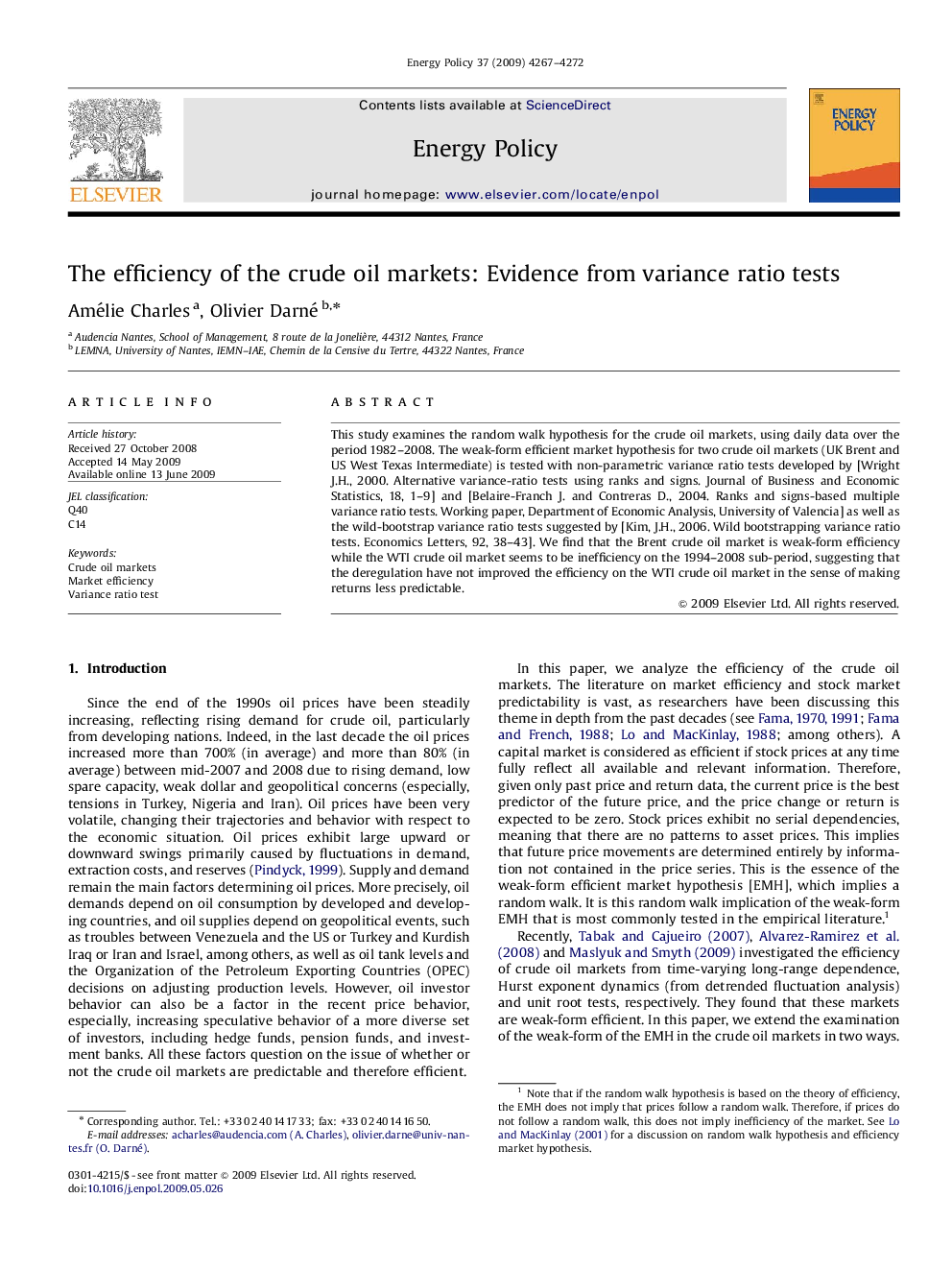| Article ID | Journal | Published Year | Pages | File Type |
|---|---|---|---|---|
| 996585 | Energy Policy | 2009 | 6 Pages |
This study examines the random walk hypothesis for the crude oil markets, using daily data over the period 1982–2008. The weak-form efficient market hypothesis for two crude oil markets (UK Brent and US West Texas Intermediate) is tested with non-parametric variance ratio tests developed by [Wright J.H., 2000. Alternative variance-ratio tests using ranks and signs. Journal of Business and Economic Statistics, 18, 1–9] and [Belaire-Franch J. and Contreras D., 2004. Ranks and signs-based multiple variance ratio tests. Working paper, Department of Economic Analysis, University of Valencia] as well as the wild-bootstrap variance ratio tests suggested by [Kim, J.H., 2006. Wild bootstrapping variance ratio tests. Economics Letters, 92, 38–43]. We find that the Brent crude oil market is weak-form efficiency while the WTI crude oil market seems to be inefficiency on the 1994–2008 sub-period, suggesting that the deregulation have not improved the efficiency on the WTI crude oil market in the sense of making returns less predictable.
